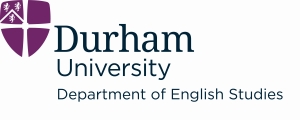Phenomenology of the Closet:Cultural, Sexual, and Textual (Dis)Orientation in Henry James's The Ambassadors
Keywords:
Henry James, Sarah Ahmed, Queer Theory, Formalism, Reader-Response Theory, DisorientationAbstract
Place can be a space for grounding, rootedness and comfort, but equally it can dislocate, dislodge and disorient a subject. Following Sarah Ahmed, I take disorientation as a particular generative term through which to interrogate queer phenomenology. I investigate, through a close reading of Henry James's The Ambassadors, how cultural, sexual and stylistic (dis)orientation can contribute to how a subject can instigate and participate in a queer space.
Downloads
References
Works Cited
Ahmed, Sara. Queer Phenomenology: Orientations, Objects, Others. Durham: Duke University Press, 2006.
Armstrong, Paul B. The Phenomenology of Henry James. Chapel Hill: University of North Carolina Press, 1983.
Boorstin, Daniel. The Image: A Guide to Pseudo-Events in America. New York: Atheneum, 1985.
Buzard, James. The Beaten Track: European Tourism, Literature and the Ways to ‘Culture’, 1800-1918. Oxford: Clarendon Press, 1993.
Carter, Erica, James Donald and Judith Squires. ‘Introduction.’ In Space and Place: Theories of Identity and Location. Eds., Erica Carter, James Donald, and Judith Squires. London: Lawrence & Wishart, 1993, pp. vii-xv.
Foucault, Michel. The History of Sexuality, Vol 1. Trans. Robert Hurley. New York: Vintage, 1988.
Hall, Stuart. ‘The Rediscovery of ‘Ideology’: Return of the Repressed in Media Studies.’ In Culture, Society, and the Media. Eds., Michael Gurevitch, et al. New York: Routledge, 1994, pp. 56-90.
Haralson, Eric. ‘Henry James and Changing Ideas about Sexuality.’ In A Historical Guide to Henry James. Eds., John Carlos Rowe and Eric Haralson. Oxford: Oxford University Press, 2012, pp. 169-196.
---, Henry James and Queer Modernity. Cambridge: Cambridge University Press, 2003.
---, ‘Lambert Strether’s Excellent Adventure.’ In The Cambridge Companion to Henry James. Ed., Jonathan L. Freedman. Cambridge: Cambridge University Press, 1998, pp. 169-186.
Hurley, Natasha. ‘Henry James and the Sexuality of Literature: Before and Beyond Queer Theory.’ In A Companion to Henry James. Ed., Greg W. Zacharias. Oxford: Oxford University Press, 2008, pp. 309-323.
Iser, Wolfgang. ‘The Reading Process: A Phenomenological Approach.’ Reader-Response Criticism: From Formalism to Post-Structuralism. Ed., Jane P. Tompkins. Baltimore: Johns Hopkins University Press, 1980, pp. 50-69.
James, Henry. The Ambassadors. Ed., S.P. Rosenbaum. 2nd ed. New York: W.W. Norton, 1994.
---, ‘Occasional Paris.’ In Americans in Paris: A Literary Anthology. Ed., Adam Gopnik. New York: Library of America, 2004, pp. 128–140.
Meissner, Collin. Henry James and the Language of Experience. Cambridge: University of Cambridge Press, 1999.
Nussbaum, Martha Craven. Love’s Knowledge: Essays on Philosophy and Literature. Oxford: Oxford University Press, 1990.
Ohi, Kevin. ‘Belatedness and Style.’ In Palgrave Advances Henry James Studies. Ed., Peter Rawlings. Basingstoke: Palgrave Macmillan, 2007, pp. 126-146.
---, ‘“The novel is older, and so are the young”: On the Queerness of Style.’ The Henry James Review xxvii, 2006, pp. 140-155.
Ross Posnock. The Trial of Curiosity. Oxford: Oxford University Press, 1991.
Rivkin, Julie. ‘The Genius of the Unconscious: Psychoanalytic Criticism.’ In Palgrave Advances Henry James Studies. Ed., Peter Rawlings. Basingstoke: Palgrave Macmillan, 2007, pp. 59-79.
---, False Positions: The Representational Logics of Henry James’s Fiction. Stanford: Stanford University Press, 1996.
Savoy, Eric. ‘Entre Chein et Loup: Henry James, Queer Theory, and the Biographical Imperative.’ In Palgrave Advances Henry James Studies. Ed., Peter Rawlings. Basingstoke: Palgrave Macmillan, 2007, pp. 100-125.
Sedgwick, Eve Kosofsky, Epistemology of the Closet. Berkeley: University of California Press, 2008.
---, Touching Feeling: Affect, Pedagogy, Performativity. Durham: Duke University Press, 2003.
---, Tendencies. London: Routledge, 1994.
Stevens, Hugh. Henry James and Sexuality. Cambridge: Cambridge University Press, 1998.
Teahan, Sheila. The Rhetorical Logic of Henry James. Baton Rouge: Louisiana State University Press, 1995.
Vanita, Ruth. ‘The Homoerotics of Travel: People, Ideas, Genres.’ In The Cambridge Companion to Henry James. Ed., Jonathan L. Freedman. Cambridge: Cambridge University Press, 1998, pp. 99-115.
Williams, Merle A. Henry James and the Philosophical Novel: Being and Seeing. Cambridge: Cambridge University Press, 1993.
Yeazell, Ruth Bernard. Language and Knowledge in the Late Novels of Henry James. Chicago: University of Chicago Press, 1976.
Downloads
Issue
Section
License
Authors who publish with this journal agree to the following terms:
- Authors retain copyright and grant the journal right of first publication with the work simultaneously licensed under a Creative Commons Attribution-NonCommercial-ShareAlike 4.0 licence that allows others to share the work with an acknowledgement of the work's authorship and initial publication in this journal.
- Authors are able to enter into separate, additional contractual arrangements for the non-exclusive distribution of the journal's published version of the work (e.g., post it to an institutional repository or publish it in a book), with an acknowledgement of its initial publication in this journal.
- Authors are permitted and encouraged to post their work online (e.g., in institutional repositories or on their website) prior to and during the submission process, as it can lead to productive exchanges, as well as earlier and greater citation of published work. Authors may deposit the Submitted version; Accepted version (Author Accepted Manuscript); or Published version (Version of Record) in an institutional repository of the author's choice.

